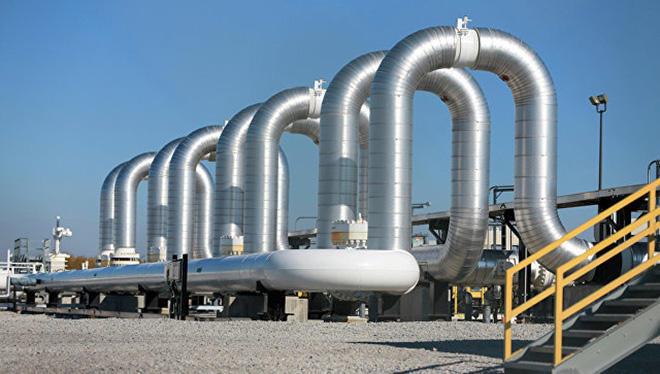
Turkey, Iran and Iraq may block Kurdish oil transfer
Kurdish independence referendum caused discontent of the neighboring states. Ankara, Tehran and Baghdad have created a tripartite mechanism for developing measures to respond to the policies of Iraqi Erbil.
This was stated by Turkish President Recep Tayyip Erdogan on October 5, NTV television channel reported.
"The three countries together will decide on closing the valve on the pipeline," he said.
Previously, Turkish leader held a meeting with his Iranian counterpart Hassan Rouhani during which both sides asserted that the referendum was illegitimate and that Iraq's territorial integrity is important for regional stability.
Turkey and Iran receive Kurdish oil, which goes through their territory for export. Kirkuk, controlled by the Kurdish forces, produces close to 400,000 barrels a day, which makes up almost 10 percent of total Iraqi oil production. The KRI is said to hold 45 billion barrels of crude reserves, or around a third of Iraq's total reserves.
Following the referendum on independence, Ankara announced that it would impose sanctions against Erbil.
Cutting off the Kirkuk-Ceyhan pipeline, pipeline that carries 500,000-600,000 barrels per day (bpd) of crude from northern Iraq to the Turkish port of Ceyhan, is one of such countermeasures.
The Kurdish Regional Government's (KRG)held a controversial independence referendum in northern Iraq, including areas disputed between Erbil and Baghdad, on September 25. Election authorities in Kurdistan announced that the independence referendum passed with 92 percent support.
Along with Iraq, Iran and Turkey - countries with Kurdish minorities - have all denounced the referendum as a threat to the stability of a region already beset by conflict, while the United States has expressed similar disquiet.
Tehran earlier announced a ban on direct flights to and from Iraqi Kurdistan at the request of the central government in Baghdad and called for a land blockade of the autonomous region by all neighbouring countries.
Even before the official results were released, the parliament in Baghdad adopted a package of measures in response to the unconstitutional move of Erbil.
The MPs demanded the government to send Iraqi troops to the disputed areas under the control of the Kurds, close the border terminals that go beyond the control of the federal government, return oil fields under the jurisdiction of the Oil Ministry, close foreign diplomatic missions in Erbil.
Kurds are the fourth-largest ethnic group in the Middle East although they have never obtained a permanent nation state. In Iraq they make up an estimated 15-20 percent of the population of 37 million. Kurds acquired autonomy following the 1991 Gulf War.
Legal Disclaimer:
MENAFN provides the
information “as is” without warranty of any kind. We do not accept
any responsibility or liability for the accuracy, content, images,
videos, licenses, completeness, legality, or reliability of the information
contained in this article. If you have any complaints or copyright
issues related to this article, kindly contact the provider above.

















Comments
No comment